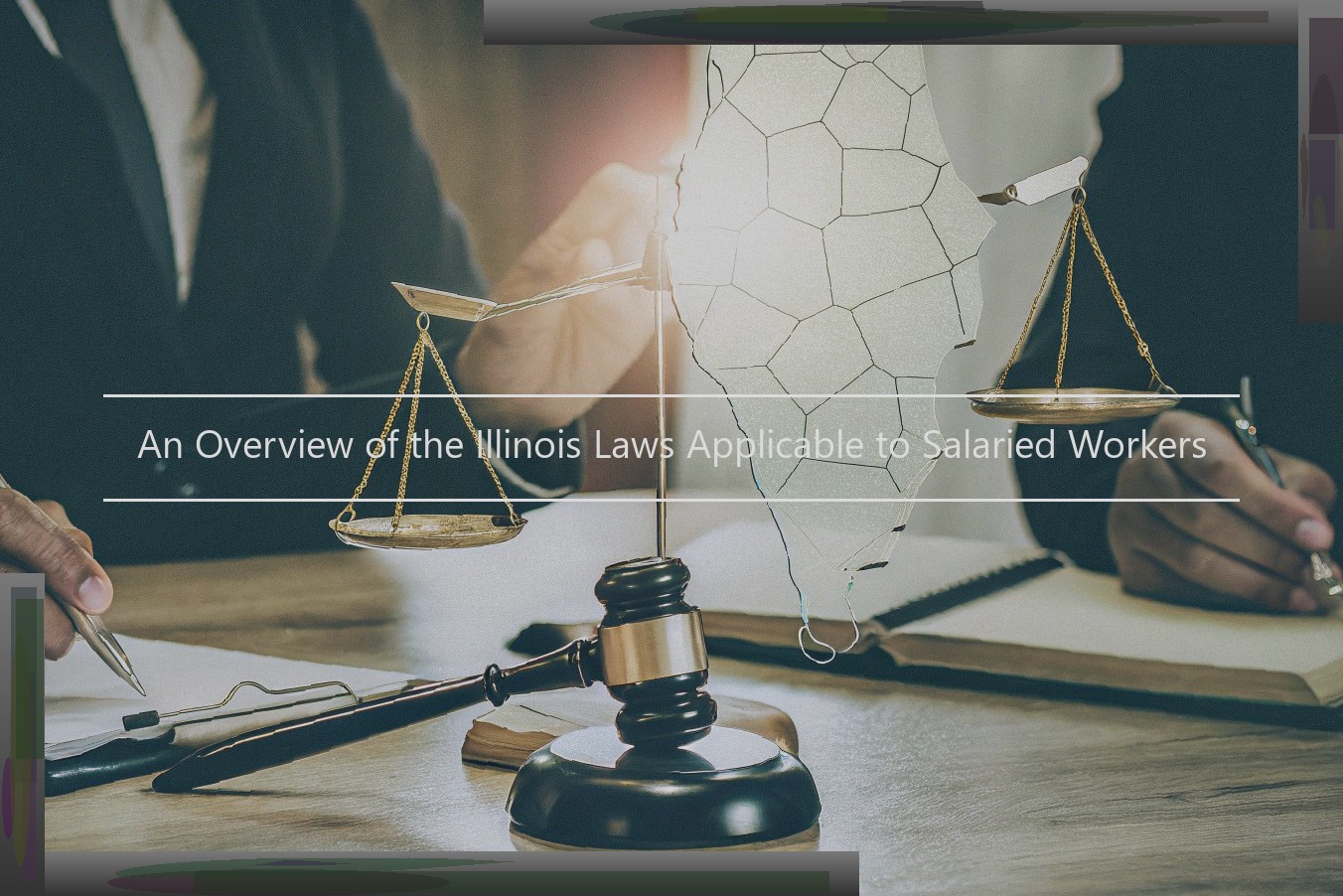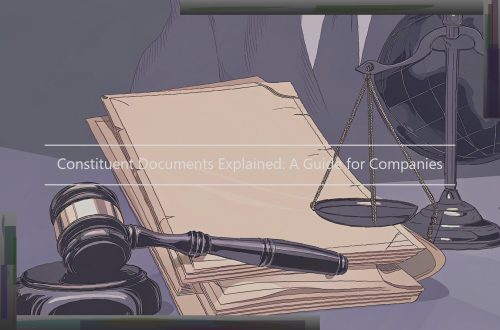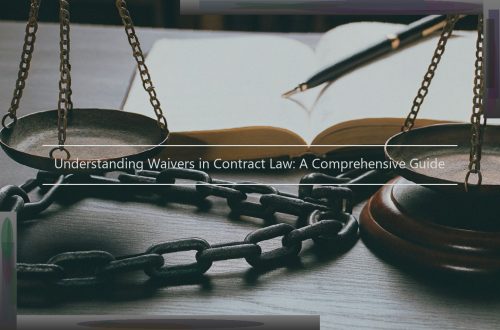An Overview of the Illinois Laws Applicable to Salaried Workers
Illinois Laws Governing Salaried Workers Explained
Labor laws regulate the relationship between employers and employees, covering a broad scope of workplace rights and responsibilities. The main federal agency in charge of administering and enforcing most labor laws is the Department of Labor (DOL). In Illinois, there is also the Illinois Department of Labor (IDL), which, among other more administrative tasks, enforces a number of employment laws at the state level. There are two key components to labor laws in Illinois: private-sector employment laws, which cover most private-sector employers; and public-sector employment laws, which cover state and local governments and their agencies.
The Fair Labor Standards Act (FLSA) is the principal law governing work hours, overtime pay, minimum wage, and child labor at the federal level . The IDL has adopted many basic principles of the FLSA, applying them to Illinois employees. Illinois’ principle labor law on wage-and-hour issues is the Minimum Wage Law. This law establishes the minimum wage rate, overtime pay requirements, child labor regulations, and other workplace protections in Illinois.
No matter how an employee is classified — hourly or salary, full- or part-time — they are generally entitled to all the protections of the FLSA and the Illinois Minimum Wage Law. There are a few exceptions to this, based on employee type and specific employer practices. In addition to the federal DOL and IDL, both private and public-sector employees in Illinois also have remedies through the courts if their labor rights are violated.

Minimum Salary Thresholds
It is important to understand how to determine whether a worker qualifies as a salaried employee, and that the final determination must be made by reviewing the job description in conjunction with relevant state and federal law. To start with, Illinois and its employers must be aware of one thing: It is not enough for a salaried employee to pass a duties test. The worker must also meet a minimum salary requirement.
Under the current Federal Labor Standards Act, an employee must receive at least $455 per week, or $23,660 annually, to qualify for exempt status. Note that the new proposed rule includes a very sharp increase in this amount, up to $970 per week, $50,440 per year, however that rule has not yet been approved. In Illinois, the state law is significantly more stringent than that, requiring that the employee receive a minimum of $656.25 per week, $34,170 annually. This requirement applies only to some salaried workers, however, because there are some exceptions to these rules, namely, the executive, professional, and administrative exemptions. Employment law is a fact-intensive field, and while the minimum wage may be easy to calculate, determining whether someone falls into one of these exemptions, whether from salary or otherwise, is much more complex.
Exempt Versus Non-Exempt
Under Illinois law, an employee’s exemption status (whether they are exempt or non-exempt) is determined by what the employee actually does to earn their salary, and not by the title that is assigned to them. While the title might give a good indication of what the employee does, it is not necessarily indicative of whether the employee must be paid overtime. Rather, one needs to look at job duties, responsibilities, and salary levels to determine whether the employee is exempt from overtime requirements.
Employees who are not exempt from overtime may be entitled to overtime under both the FLSA and Illinois law. Illinois law mandates that non-exempt employees be paid one and a half times their regular rate of pay for all hours worked in excess of forty (40) hours per week, even if the employee’s regular schedule is less than forty (40) hours per week (such as a four or five day work week). One and a half times an employee’s regular rate of pay is calculated by first determining the employee’s regular hourly rate, which is computed by dividing the employee’s total compensation for the week by the number of hours actually worked, depending on the type of employee. Then, the employee’s hourly rate is multiplied by 1.5 to determine the employee’s overtime rate. Note, the "regular rate" does not always equal the usual or base hourly rate.
For example, at certain times an employer may give an employee a bonus based on production or other incentives such as gift cards or discounts on goods or services provided to the employee. The regular rate of pay then must be "deemed to include all remuneration for employment paid to, or on behalf of, the employee." When calculating an employee’s regular rate of pay, the employer must add the bonus, gift card discount, or other incentive to the employee’s base salary and divide the total by the maximum hours that the employee works or is expected to work in a workweek, pursuant to the DOL’s regulations at 29 CFR §778.109. Note, the employer does not have to include gifts given as a measure of goodwill that are not claimed as part of the employee’s taxable income, a reimbursement or other expense allowance, relocation payments, expenses incidental to the employer’s business, or travel payments.
Salaried Workers and Overtime
Although it’s less common than paying hourly workers overtime, salaried employees may be entitled to premium pay as well. Just because a worker is exempt from the federal Fair Labor Standards Act (FLSA) does not mean they are exempt from the IL-WPCA or the state law overtime requirements. For example, although some outside salespeople have been found to fall under the FLSA’s sales or service employee exemption and therefore not be entitled to time and a half wages when working overtime, the IL-WPCA and IWPST both require that, except for certain instances, overtime be paid for all hours worked over 40 in a week.
In response to this scenario, IWPST provides that for any week in which payment is made on a salary basis, compensation is earned and the employee is entitled to 1 1/2 times his or her regular rate of pay for all hours worked over 40. Use of the regular rate for calculation of overtime eliminates the need for the employer to maintain detailed time records for salaried employees. 820 ILCS 105/4(c)(1).
The regulations offered by IWPST are similar those offered by the FLSA: 29 C.F.R. 778.112. IWPST defines regular rate as a rate derived from the salary. For example, in calculating the regular rate for an employee paid an annual salary of $52,000, the employer would remove all non-discretionary bonuses and then divide by: (1) the number of workweeks for which the salary was paid (52); and (2) 40 hours. Thus, the regular rate for a $52,000 salaried employee is $23.65 an hour. An employer paying a salaried employee $1,000 a week could not simply treat the $1,000 as being paid for 40 hours of work. Even under the federal regulations, uncompensated hours in excess of 40 must be factored into the calculation.
Paid Sick Time and Other Benefits
Salaried employees do not have a right to sick and vacation pay in Illinois through state law. The Illinois Wage Payment and Collection Act and the Illinois Minimum Wage Law do not require employers to provide paid time off for sick days or for vacation.
If an employer provides paid time off (PTO) or vacation days as part of its compensation package, that is likely sufficient to protect the employer from future claims. Day-to-day, however, it is wise to have a clearly articulated policy so that no ambiguity exists as to how PTO/vacation requests should be made.
A number of companies have chosen to combine sick leave, PTO, and vacation into a single classification and allow employees to take their time as they see fit. This policy is typically implemented by stating that employees have x number of days of PTO, and that the days can be used for any reason . However, if PTO policies do not state that employees must actually use the PTO days and do not explicitly forbid employees from keeping any earned PTO at the end of their employment, the employer may be required to pay employees for any unused PTO. Similarly, if the employer has a "One-Day Rule" but does not have a written policy addressing whether the employee has to take that day as PTO, the employer may have a claim for improper deduction from overtime.
Because the determination of both the entitlement to, and amount of, PTO/vacation pay under a given policy can depend on the writing, interpretation, and application of the employer’s policy, it is always good practice to have a written policy that requires employees to take PTO/vacation days and make it clear that failing to do so will not convert PTO/vacation pay into earned wages.
Protection Against On-The-Job Discrimination
Salaried employees also enjoy protections against workplace discrimination under Illinois law, which provides that an employer may not "fail to hire or to discharge any individual or otherwise discriminate against any individual with respect to compensation, terms, conditions or privileges of employment because of…sex, age, race, color, national origin, disability, marital status, religion or pregnancy." When a worker deals with any kind of discrimination, there are numerous illegal job actions or employer practices that can come into play. Some examples include:
In order to properly deal with workplace discrimination, workers should carefully document how their employers’ conduct, or a manager’s actions, is causing severe and widespread antagonism. In addition, keep records of pay stubs, time cards, position statements for discrimination complaints, and witness accounts. Only a small portion of discrimination cases go to trial and end in victory; more than 95 percent settle before resolution because of the complex nature of legal arguments in these cases.
Recent Developments and Updates
In August 2016, the Illinois Department of Labor made revisions to its "Employee Classification Act" which aims to ensure that service providers pay employees the proper wages. The Act prohibits the misclassification of construction workers by construction contractors and other persons or entities who use construction services. A person or entity is "deemed to be a construction contractor if it deals with the public and enters into a contract, agreement or purchase order with a subcontractor for construction services." The revisions were made to clarify the definition of "independent contractor" and to add stiff penalties to those who violate the Act—penalties range from $1,000 for individuals to $2,000 for corporations per violation of the Employee Classification Act. Though the Act does not specifically mention salaried employees, the revisions may affect these workers’ overtime status.
On May 18, 2016, the U.S. Department of Labor updated its white-collar exemptions for salaried workers—including stipulations for executive, administrative, and professional employees in Illinois. While the Act does comply with federal standards, requirements for fair employee payment outlined in the revisions to the white-collar exemptions are currently on hold due to a decision by a federal judge in Texas. The judge ruled on November 22, 2016 that the White House’s proposal to raise the salary to qualify for the exemptions from $23,660 to $47,476 is illegal. It is unclear whether the Texas ruling will be overturned upon appeal, but if it is not, the exemption increase may be well beyond the May 25, 2016 effective date.
Legal Aid for Salaried Workers
For more detailed information on whether you are covered by state or federal labor laws, or if your rights as a salaried employee are being violated, the Illinois Department of Labor (IDOL) website contains a vast array of information. The IDOL has a minimum wage calculator to help you analyze how much you should be getting paid per hour and if your employer is in compliance with Illinois laws. They also have a textbook worth of information on both state and federal labor law , so you can preface any questions to your attorney with some rudimentary understanding of the law applied to your situation.
If your issue cannot be resolved by either the Department or through your own negotiation with your employer, there are plenty of excellent attorneys out there that will be happy to help you out, like ourselves and our colleagues. The Illinois State Bar Association has compiled a high-quality directory of attorneys in your area willing to help you out with your specific questions.
The U.S. Department of Labor’s website is another good, solid source of information on the federal Fair Labor Standards Act if you are uncertain, but do not need to be.




